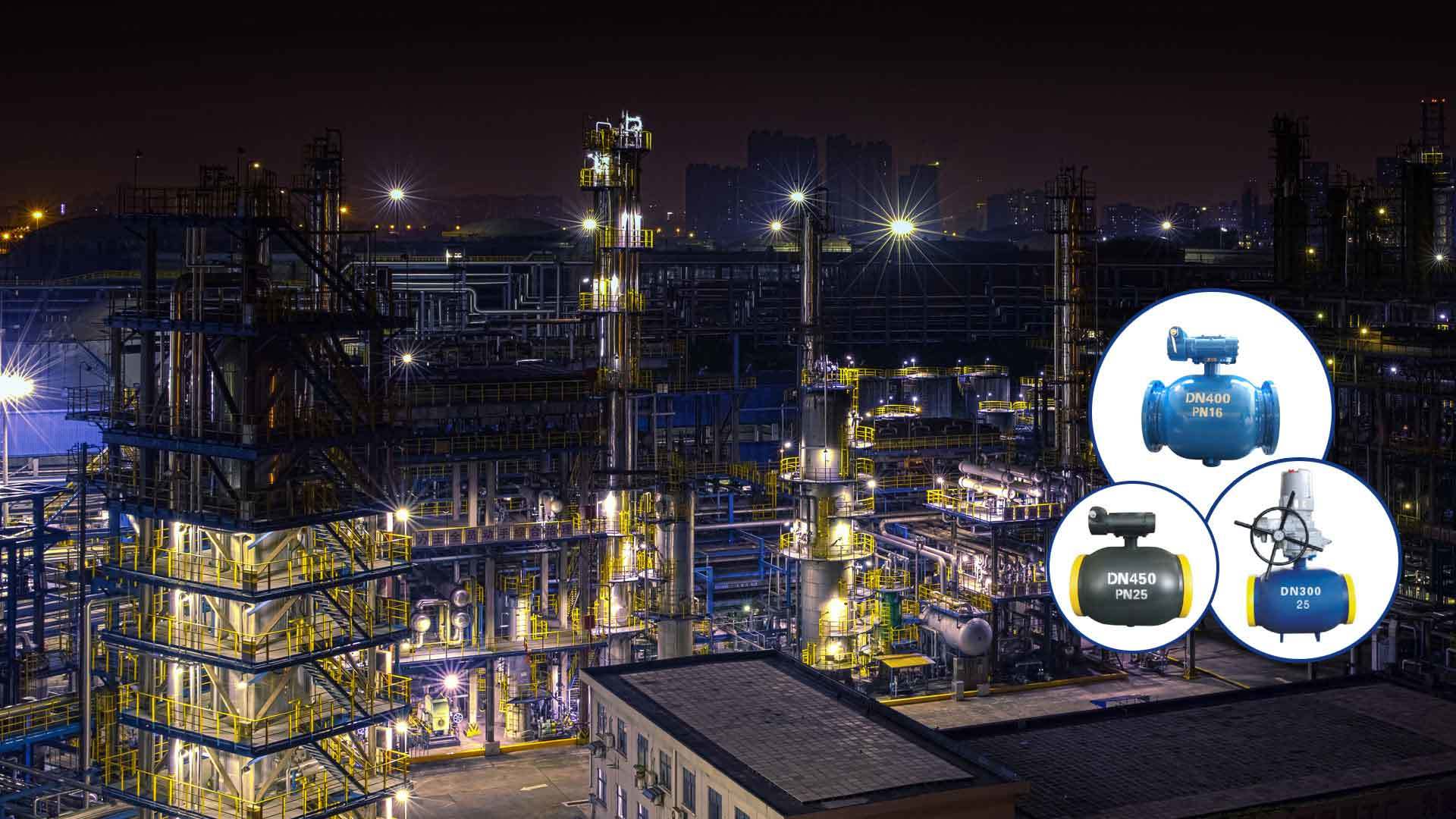
News & Events
Understanding Flange Fully-Welded Steel Ball Valves: Key Features and Applications
Release time: 2024-12-13
Flange Fully-Welded Steel Ball Valves are integral components in many industrial processes, providing reliable control over fluid flow within pipelines. These valves are crafted with a fully-welded design, which offers significant advantages in terms of durability and safety compared to traditional bolted or flanged valves.
One of the primary benefits of a Flange Fully-Welded Steel Ball Valve is its ability to maintain a robust and leak-proof seal under high-pressure conditions. The fully-welded construction means that there are no joints or gaskets that can wear out or fail over time, making these valves particularly suitable for critical applications such as oil and gas, chemical processing, and water treatment facilities. This design minimizes the risk of leaks, ensuring that the systems remain safe and efficient.
In addition to their leak-proof nature, Flange Fully-Welded Steel Ball Valves are resistant to corrosion and other environmental factors. The materials used in their construction are often selected for their ability to withstand harsh conditions, making them ideal for use in both indoor and outdoor settings. This resilience contributes to a longer lifespan, which can significantly reduce maintenance costs and downtime in industrial operations.
The ease of maintenance is another critical feature of Flange Fully-Welded Steel Ball Valves. Their design typically allows for quick visual inspections and minimal intervention for servicing. This user-friendly aspect is particularly important in industries where time and efficiency are paramount. Maintenance teams can rely on these valves to perform consistently without the need for frequent replacements or repairs.
When considering the application of Flange Fully-Welded Steel Ball Valves, it is essential to recognize their versatility. They can be employed in various sectors, including petrochemical, pharmaceuticals, and food processing. Their ability to handle different types of fluids, including viscous materials, makes them adaptable to a wide range of operational needs.
Moreover, these valves can be operated manually or automatically, providing flexibility in how they are integrated into different systems. Automated options can enhance operational efficiency, allowing for remote control and monitoring, which is particularly useful in large facilities with complex piping systems.
In summary, Flange Fully-Welded Steel Ball Valves represent a significant advancement in valve technology, offering reliability, safety, and versatility for various industrial applications. Their robust construction, resistance to environmental factors, and ease of maintenance make them an excellent choice for industries requiring dependable flow control solutions. Understanding the key features of these valves can help businesses make informed decisions when selecting components for their industrial systems.
One of the primary benefits of a Flange Fully-Welded Steel Ball Valve is its ability to maintain a robust and leak-proof seal under high-pressure conditions. The fully-welded construction means that there are no joints or gaskets that can wear out or fail over time, making these valves particularly suitable for critical applications such as oil and gas, chemical processing, and water treatment facilities. This design minimizes the risk of leaks, ensuring that the systems remain safe and efficient.
In addition to their leak-proof nature, Flange Fully-Welded Steel Ball Valves are resistant to corrosion and other environmental factors. The materials used in their construction are often selected for their ability to withstand harsh conditions, making them ideal for use in both indoor and outdoor settings. This resilience contributes to a longer lifespan, which can significantly reduce maintenance costs and downtime in industrial operations.
The ease of maintenance is another critical feature of Flange Fully-Welded Steel Ball Valves. Their design typically allows for quick visual inspections and minimal intervention for servicing. This user-friendly aspect is particularly important in industries where time and efficiency are paramount. Maintenance teams can rely on these valves to perform consistently without the need for frequent replacements or repairs.
When considering the application of Flange Fully-Welded Steel Ball Valves, it is essential to recognize their versatility. They can be employed in various sectors, including petrochemical, pharmaceuticals, and food processing. Their ability to handle different types of fluids, including viscous materials, makes them adaptable to a wide range of operational needs.
Moreover, these valves can be operated manually or automatically, providing flexibility in how they are integrated into different systems. Automated options can enhance operational efficiency, allowing for remote control and monitoring, which is particularly useful in large facilities with complex piping systems.
In summary, Flange Fully-Welded Steel Ball Valves represent a significant advancement in valve technology, offering reliability, safety, and versatility for various industrial applications. Their robust construction, resistance to environmental factors, and ease of maintenance make them an excellent choice for industries requiring dependable flow control solutions. Understanding the key features of these valves can help businesses make informed decisions when selecting components for their industrial systems.
Keywords: Flange Fully-welded Steel Ball Valve
 sales@cnmxv.cn
sales@cnmxv.cn
 86-577-67389088
86-577-67389088







